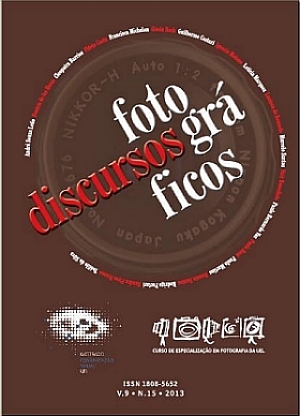The generation of meanings on TV journalism: a study of the public health in the Jornal Nacional
DOI:
https://doi.org/10.5433/1984-7939.2013v9n15p268Keywords:
TV Journalism, Jornal Nacional, . Sistema Único de Saúde, Construction of meaning, Meanings.Abstract
The picture is likely to produce senses that generate meanings, mainly in the culture media, taken as the products of the media, with their respective vehicles. These are mechanisms for building values, beliefs and customs. Therefore, the television news is an important space for the construction of senses that create meaning for the viewer. In this context, the objective of this dissertation is to identify the elements of the message of TV news in reporting on public health in the Jornal Nacional (JN), of Globo Television Network, pointing the senses produced. The methodology of this study adopts the instrument of data collection, the technique of valence (positive, negative, neutral and balanced). The reports of JN on public health were classified by category (MedicalCareHospital, Program / Project Health, Complementary Health, Outpatient Medical Care, Drugs, Death, Disease, Health Financing), the format (Report, Full Report, Special Report, Series, Note Hedged) and the duration. In all, 42 were classified and analyzed raw, aired by National Journal in 2011, with a total of 133 minutes and 49 seconds. The negative valences totaling 83 minutes and 2 seconds, almost twice the positive valences (43 minutes and 3 seconds). Most of the material was classified in categoryMedicalCareHospital: 28 (66.66%), followed by the category Program / Health Project, with 8 occurrences (19.04%). The reporting formats are used (14) and Full Feature (12). The approach of the National Journal to public health, mostly negative, is symbolic and serves on the representation bias, producing meanings that are decoded by the viewer to construct different meanings. The confirmation of the three hypotheses of this study shows that the Jornal Nacional builds negative meanings in relation to the Brazilian public health when first, mainly emphasizes facts and bad events, and second, it addresses public health in factual events, treating them superficially and decontextualized from the complexity of the public health system of Brazil, third, does not associate the facts and positive events to public health policy in Brazil, in other words not reference the positive developments of the system to the universe of the SUS.
Downloads
Downloads
Published
How to Cite
Issue
Section
License

This work is licensed under a Creative Commons Attribution-NonCommercial 4.0 International License.
Discursos fotográficos adota a licença CC-BY-NC, esta licença permite copiar e redistribuir o material em qualquer meio ou formato, remixar, transformar e desenvolver o material, desde que não seja para fins comerciais. E deve-se atribuir o devido crédito ao criador.

Este obra está licenciado com uma Licença Creative Commons Atribuição-NãoComercial 4.0 Internacional.




















